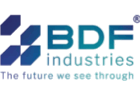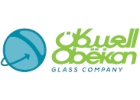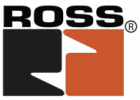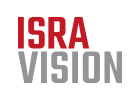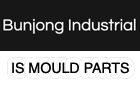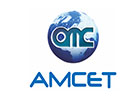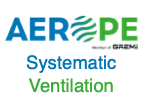Phil Fenton, Lead packaging and recycling advisor at British Glass, comments on the current glass recycling situation.
"The UK glass packaging industry is reaching crisis point. Policy developed to support recycling is in fact eroding the UK circular economy, rewarding the export of waste glass, reducing the recycled glass content of UK packaging and making it harder for businesses to achieve their net zero goals. Despite the high demand for recycled glass by the UK glass industry, more than two thirds of the glass being exported could have been used by UK glass manufacturers, helping to increase the recycled content of packaging and save tens of thousands of tonnes of Co2. The UK Government must act urgently to stem the flow of glass and support the British circular economy."
"Recycled glass is crucial for glass manufacturing. It is the primary material in glass manufacture and is fundamental to support the industry in achieving net zero by 2050. This is because for every one tonne of glass remelted in the furnace for the production of new bottles and jars, a carbon saving of 580kg of carbon emissions is achieved which is why industry has set a target of achieving a 90% glass collection rate by 2030."
"The PRN system with its obligated recycling and closed loop remelt target for glass has been a key driver to increase bottle-to-bottle recycling over the last decade. However, over the last two years the PRN/PERN system has incentivised the export of unprocessed waste glass. This valuable glass could have been used by UK manufacturers to help reduce their CO2 emissions and support the competitiveness of British businesses. It is possible to manufacture glass packaging with 100% recycled content in the UK, but this quantity of recycled glass is currently not available in the UK, as we export over 276,000 tonnes of unprocessed glass for recycling outside of the UK."
"So why is this the case? The PRN system allows glass exporters to claim a remelt PERN on unprocessed waste glass. This incentivises export as they receive the same value as a UK remelt PRN without the investment in processing, energy, staff, technology costs and colour sorting equipment. In 2020 approximately 20% of glass suitable for UK remelt was exported to European countries including to Portugal, Spain and the Netherlands. Although there has always been some export of glass this has accelerated dramatically in recent years. First driven by volatility from covid but now forming a self-exacerbating loop driven by the high PERN price and the extremely low cost to collect for export with no processing cost – the exporting of glass is driving a UK shortage of recycled glass and the increase in glass prices. As PRN prices rise, the incentive to export unprocessed glass increases. In the period January to September 2022, we saw 39% more glass exported than in the same period in 2021."
"The UK imports more green glass packaging via filled wine and beers bottles than is manufactured in the UK. We produce large quantities of clear glass, much of which is then shipped abroad as filled spirit bottles meaning less clear glass in the domestic waste stream. This imbalance produces excess quantities of green glass. However, there is a real shortage of clear and brown recycled glass for the production of glass packaging in the UK. Nearly all glass collected in the UK is collected as mixed colour, green, brown and clear all mixed together, which needs to be colour separated for use by the UK glass industry. All exported glass is mixed colour and has received no processing to remove non glass contaminates (caps and labels) and separate out into the three colours. This means that we are exporting valuable clear and brown glass which UK glass manufacturers need to reduce CO2 emissions and demand on virgin materials."
"British Glass believes that from the 276,000 tonnes exported in 2020, 65% could have been used by UK glass manufacturers. This recycled glass would have increased average recycled content by 10%, saved over 100k tonnes of CO2 and saved UK businesses over £7m in energy and emissions costs. It is clear there is a significant benefit to supporting the UK circular economy for glass, regardless of whether that glass is collected from households in Hastings, Hull or the Hebrides. Policy that supports the utilisation of UK waste glass would see capacity for reprocessing meet supply in just a matter of months, as the revenue from PRNs from glass processed and used in the UK will generate income for investment in the UK infrastructure."
"The UK glass industry has pioneered recycling since the first bottle banks were introduced by the industry in the 70’s. However, all this progress, funding and commitment to drive closed loop glass recycling is at risk due to the PERN. Rather than any signs of improvement, the situation is set to worsen. In recent weeks it has been reported that exporters are increasing their capacity to ship unprocessed waste glass by over 100,000 tonnes. Operating at full capacity, this additional export will further reduce the availability of glass for UK manufacturers, increase industry CO2 emissions by 43,000 tonnes and cost the UK glass sector an additional £3m in energy and carbon costs."
"There is widespread political and industry support for a thriving, sustainable, high wage, high skilled UK glass industry producing high recycled content and low carbon footprint glass but we can only achieve this if we have a favourable policy landscape. We are supportive of the much-needed upcoming reforms on extended producer responsibility and consistency of collections, but the ambition, effort and cost of these reforms by government and the supply chain will be for nothing if the prized glass is simply shipped to other shores due to a policy that financially incentivises export."
"An efficient and affordable PRN scheme must be the bedrock of the upcoming reforms for glass to drive a 90% collection rate with at least 80% of glass to remelt by 2030, but it must support the domestic market through investment in capacity and efficiency, not hinder it. Australia has shown it’s possible by recently banning the export of unprocessed glass, ensuring all glass collected for recycling is processed and colour sorted within the country, prioritising domestic manufacturers. It is only after this that surplus glass is exported. Doing similar in the UK would drive the circular economy, support the long-term competitiveness of British industry and its bid to achieve net zero by 2050. It is within the power of the UK Government to set policy to support the circular economy in the UK and for the government to work with us to achieve this."





